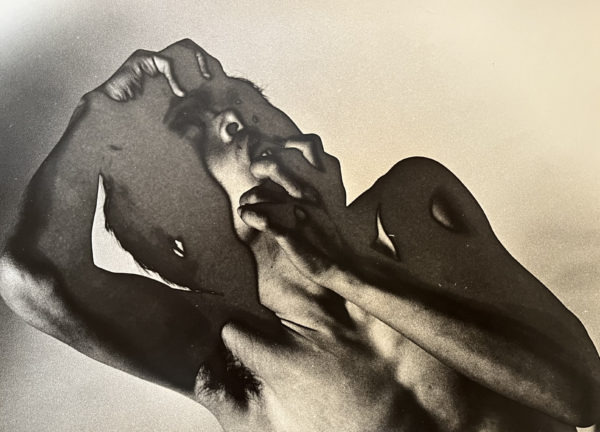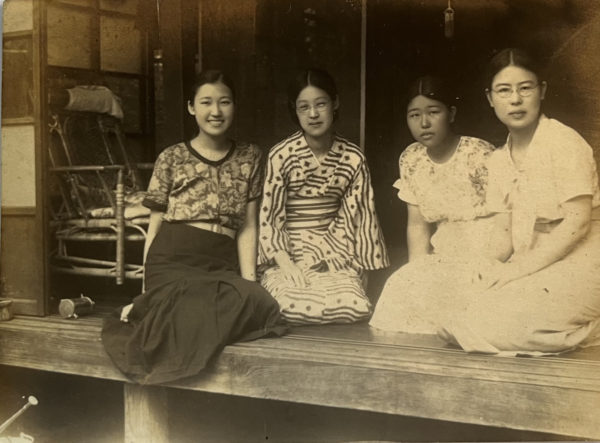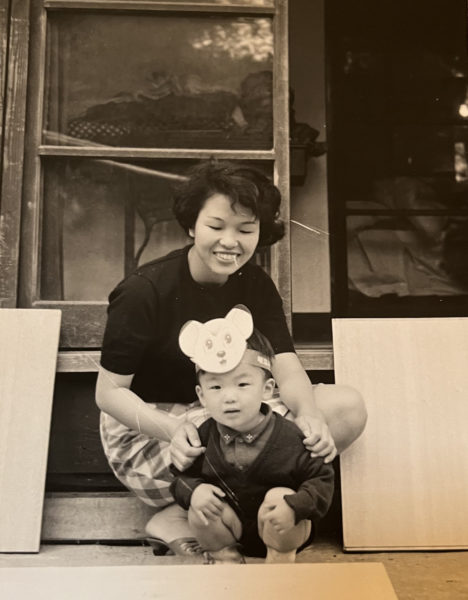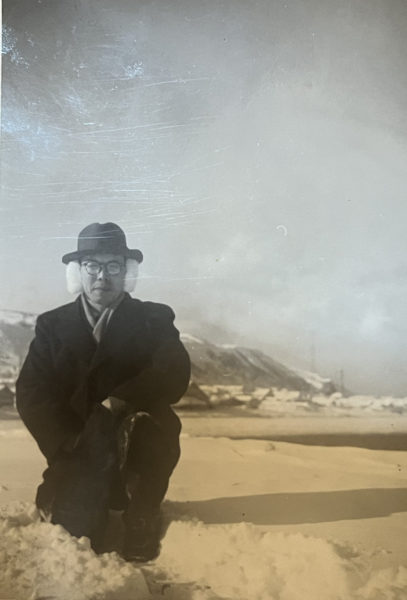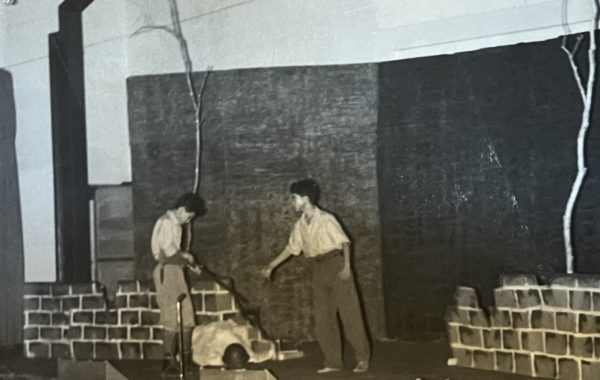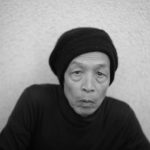笠井叡 舞踏をはじめて <1>
Akira Kasai Begins Butoh <1>.
Akira Kasai studied under Kazuo Ohno, interacted with Tatsumi Hijikata, and gave birth to the word "butoh". He will talk about his life and his own butoh.
In May 1961, Akira Kasai entered the Takaya Eguchi and Misako Miya Dance Institute. He took modern dance lessons and began his career in dance.
I began my dance training at the age of 18, right after graduating from high school. I went to the Takaya Eguchi and Misako Miya Dance Institute near Tokyo Metropolitan University Station and learned modern dance. That is where my dance life began. However, it was not a path that I wanted to take, but one that my mother pushed me to take.Since I was a child, I didn't have any dream for the future and even when I was about to graduate from high school, I had no idea what kind of job I wanted to have. I was neither a house builder nor a train builder. I was not capable of doing anything productive, and I had no concrete idea what I wanted to do.
When I graduated from high school, I did not go to college, and I spent many agonizing days wondering, "What is the purpose of life?" Perhaps not wanting to see me in such a state, one day my mother told me, "There is a dance school called the Takaya Eguchi Miya Misako Dance Institute. She recommended that I go there and try some physical exercise, and I decided to go to the class as she suggested. Chizuru Shoda, a former student of Mr. Eguchi's, lived nearby and introduced me to the school through her.
I had no idea what modern dance was really about. I had no idea, but apparently dance practice involves wearing tights. First, I went to Shibuya to get some tights and headed to the rehearsal. But the tights I chose were thick, like those worn by professional wrestlers, and of course no one in Eguchi's class wore such tights. I was the only one in thick tights, and although I felt embarrassed, I had no choice but to wear them to practice.
At the time, I was not at all interested in the body, and I think I was just lightly thinking, "Let's try something different". When I actually attended the rehearsals, the idea of being in a place where people move their bodies to the piano seemed very strange to me, and I strongly wondered what would happen if I stayed in such a place. Of course, I had no idea that I would make a career out of dancing.
If it had not been for my mother's advice, I would never have found a career in dance. My mother was the type of person who would tell her children what to do and what not to do, and I followed her words without much resistance. I started taking dance classes because my mother told me to, even though I myself was not that interested. It was there that I met Mr. Takaya Eguchi and later Mr. Kazuo Ohno. It was a coincidence, but then again, maybe it was all inevitable already.
In those days, it was rare for men to dance. My mother was a person who lived outside the norm and maintained a free spirit, which was rare in that era.
My mother was born in Tsu City, Mie Prefecture. She was born the daughter of a banker and grew up in a large three-story Western-style house by the sea. My grandfather was fluent in English and sometimes acted as an interpreter for cultural figures and musicians who came from abroad, and as a result, they often came to stay at our house.
Perhaps because she was raised in a European atmosphere, my mother had a hard time adjusting to Japanese society. She was a person who lived a way of life that was out of the ordinary for her time. My mother studied mathematics at Tokyo Women's University. At that time, the university attracted women like Raiteu Hiratsuka and Akiko Yosano, who were advocates of women's rights.
Because her grandparents were Christians, my mother was familiar with church from an early age and was taught by a pioneer of the pipe organ in Japan. She began playing the pipe organ, which was still a rarity at that time, in church.
On the other hand, my father's family came from a commoner's background, a low-ranking samurai in Kyushu. My father was in the business of taking care of juvenile delinquents and other people who were unable to lead a good social life, and from there he aspired to become a judge. He was a hard worker who only graduated from an ordinary elementary school and taught himself to be a judge; I heard that when he passed the bar exam at the age of 20, he was featured in the newspaper.
My father was a very strict man, both morally and legally. He was very strict, and I was always called into his room and he would get angry with me. He would scold me for doing this and that, but his words were abstract, as if he were reading a judgment, and as a child I had no idea why he was angry with me.
My father and mother are the exact opposite of each other. I don't know how they got married. In fact, they often quarreled, but my mother was the stronger one. Mother's educational policy was completely different from my father's Mother spoiled the children, while father was strict with them. I think it is because of that environment that I have both a free spirit and a certain strictness, which are contradictory qualities.
My mother was pregnant in Ashiya and gave birth to me in Sakai City, Mie Prefecture, where she had been evacuated. She then evacuated to Numata in Gunma Prefecture and lived there until the end of the war. The wartime landscape is clearly etched in my memory, and I remember American military planes often flying overhead.
I am the middle of three siblings, with an older sister two years older and a younger brother three years younger. My brother was born in Numata. When I was a small child, I used to order my younger brother around as much as I wanted, because I had the belief that I could treat him as I wanted. But suddenly he said to me, "If I have to do everything for my brother, I'd rather die!" I was told. I was in the third grade of elementary school, and it was a bit easygoing because I didn't realize that my brother had been putting up with it until then.
Unlike me, my brother was brilliant and went on to study mathematics at the University of Tokyo. There he encountered the flute and became a musician. It may seem surprising, but there are actually many people with a background in science and mathematics who become musicians. Perhaps a kind of purity that does not include human emotions is the common denominator. My brother was a member of an orchestra in Switzerland for several decades and is still living there after retirement. His wife passed away early, but their daughter, my niece, has become a violinist and is active in Europe. My third son Mitsutake's wife, Naoka Uemura, seems to be a close friend of her, and they used to perform together at the Setagaya Art Museum.
My sister is also a science and math person and went on to study physics. She went on to an educational university and then to graduate school at the University of Tokyo. My sister worked as a childcarer and her husband taught economics at a university. But he died early, and to my sister's surprise, she became a ballroom dance teacher.
Judges are not allowed to live in one place for a long time to prevent collusion, so they repeatedly moved from Tsu City in Mie Prefecture to Numata in Gunma Prefecture, and then to Sapporo. I changed elementary schools six times and was supposed to go to Tokyo after that.
My father was a judge at the Sapporo High Court, but he was killed in a maritime accident in Hakodate on a business trip at the age of 41, a victim of the Toya Maru accident on September 26, 1954. I was 11 years old at the time. If my father had lived, he would have told me to go to college and study law instead of taking dance classes.
With my strict father gone, I suddenly felt like I had been thrown into a world of freedom. I feared that I would be degraded as a human being, but at the same time, I also felt how easy it was.
My mother's fresh start came quickly. After my father passed away, we moved to Tokyo. My father had acquired the land before his death, as his next posting would be in Tokyo. A new life began in Kokubunji, Tokyo, where we now live.
My mother told me that I would make bad friends if I went to a public school, so my siblings and I were sent to a private school, Musashino Gakuen. Musashino Gakuen was a mission-based school with a somewhat unique Steiner-style liberal education.
It was there that my mother met my brother's homeroom teacher, Mr. Yoshikawa, and they were soon married again. Mr. Yoshikawa was still young, and there was more than a 10-year age difference between him and my mother, who was in her late 30s.
Mr. Yoshikawa loved the theater and often took me to plays. The first time I saw a play was when I was in the 6th grade of elementary school, and it was a performance by Shiina Rinzo of the Haiyuza Theater. It was a proscenium theater, with blue lights on the horizontals and actors wearing makeup. It was a sight I had never seen before, and I was amazed at what an amazing world it was. In the towns where we usually live, there are houses, fields, factories, cars, and trains. But there is another world within the space of the stage. I learned that there is another reality, an imaginary world, within the reality in which we live. It was a tremendous shock.
Along with the theater experience, I also have a strong memory of a ballet recital I attended when I was a child. Watching a girl dance on stage, I was extremely surprised by the fact that the space was created by artificial movements. Going further back, I also remember being greatly shocked by a finger puppet I saw when I was three years old. It was shocking to me that a human being could become an object and move with his or her fingers. These three experiences were what strongly attracted me as a child, and these scenes are still burned clearly in my memory.
Continue to Akira Kasai First experience with Butoh <2>.
Profile
Butoh dancer and choreographer, who became friends with Tatsumi Hijikata and Kazuo Ohno at a young age in the 1960s, and gave numerous solo butoh performances mainly in Tokyo and elsewhere. In the 1970's, operated Tenshikan Butoh dance school where he trained numerous butoh dansers. From 1979 to 1985, studied abroad to study in Germany.Studied Rudolf Steiner's anthroposophy and eurythmy. After returning to Japan, he did not perform on stage and was away from the dance world for 15 years, but returned to the stage with "Seraphita". Since then, he has given numerous performances in Japan and abroad, and has been praised as "the Nijinsky of Butoh". His masterpiece "Pollen Revolution" was performed in various cities around the world. He has created works in Berlin, Rome, New York, Angers, the Centre National de Danse Contemporaine de France, and elsewhere. https://akirakasai.com
